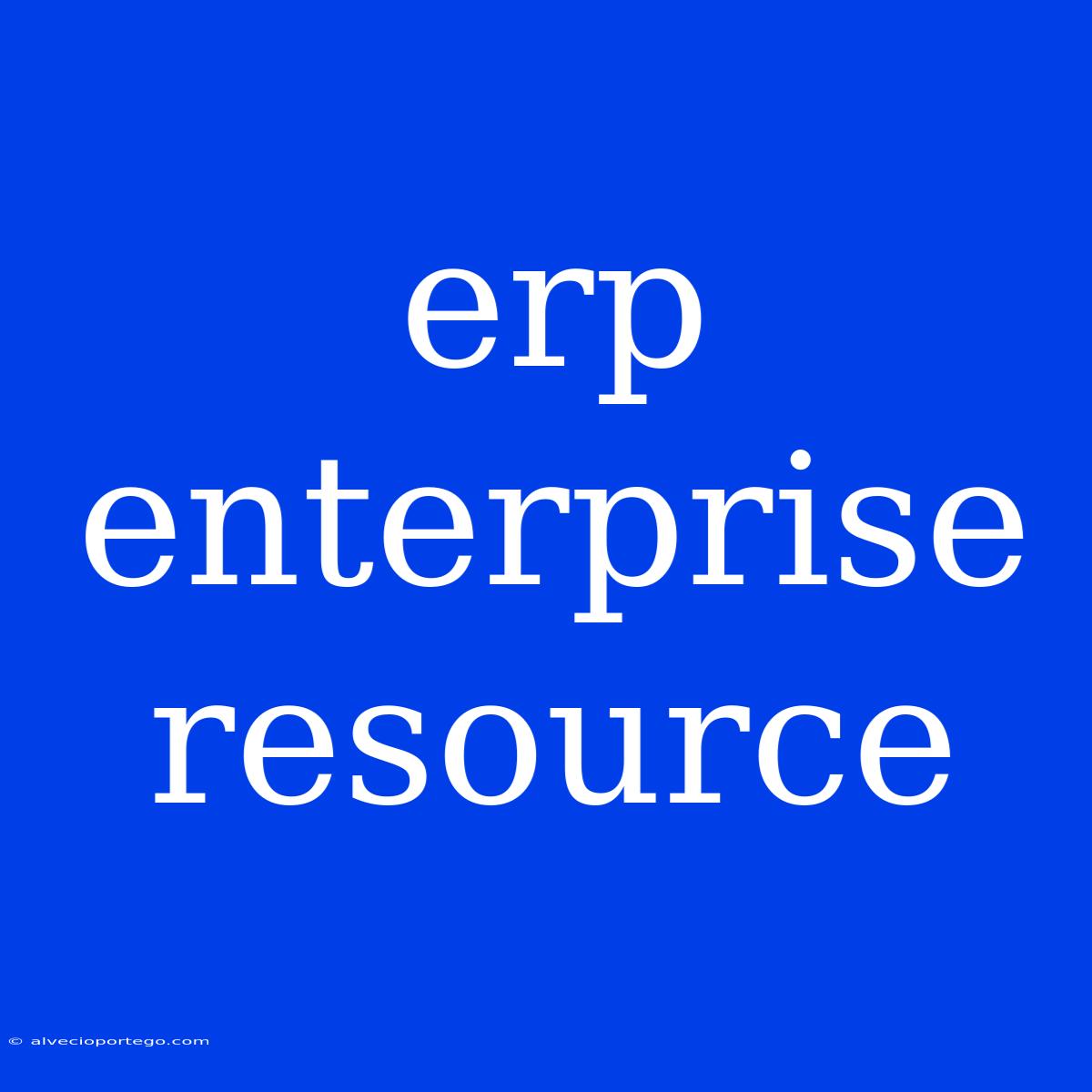Enterprise Resource Planning (ERP): A Comprehensive Guide for Modern Businesses
What is ERP?
Enterprise Resource Planning (ERP) is a software solution designed to integrate and manage all aspects of a business's operations, from finance and accounting to human resources and supply chain management. It centralizes data across different departments, providing a holistic view of the business, streamlining processes, and ultimately improving efficiency and profitability.
Key Components of an ERP System:
A comprehensive ERP system typically includes modules for:
- Financial Management: Accounting, budgeting, financial reporting, and cash flow management.
- Human Resource Management (HRM): Employee data, payroll, benefits, recruiting, and talent management.
- Supply Chain Management (SCM): Inventory control, procurement, manufacturing, and distribution.
- Customer Relationship Management (CRM): Sales, marketing, customer service, and support.
- Manufacturing: Production planning, scheduling, and quality control.
Benefits of Implementing an ERP System:
- Improved Efficiency: Automation of repetitive tasks and streamlined processes lead to increased productivity.
- Enhanced Data Visibility: Centralized data provides real-time insights into business performance, enabling informed decision-making.
- Reduced Costs: Streamlined processes and optimized resource allocation lead to significant cost savings.
- Increased Compliance: Automated processes ensure compliance with regulations and industry standards.
- Improved Customer Satisfaction: Better communication, faster response times, and improved service quality result in happier customers.
- Scalability and Flexibility: ERP systems can adapt to changing business needs and accommodate growth.
Choosing the Right ERP System:
Selecting the right ERP system is crucial for successful implementation. Consider these factors:
- Business size and complexity: Small businesses may require a simpler system compared to larger enterprises.
- Industry-specific requirements: Some ERP systems cater to specific industries like manufacturing, healthcare, or retail.
- Budget: ERP systems vary in price depending on features, modules, and implementation services.
- Integration with existing systems: Ensure the ERP system can integrate seamlessly with existing software and applications.
Implementation and Maintenance:
Implementing an ERP system requires careful planning, project management, and user training. Ongoing maintenance and support are essential to ensure optimal performance and address evolving business needs.
Conclusion:
ERP systems are powerful tools that can transform businesses by optimizing operations, improving efficiency, and enhancing data visibility. By implementing a comprehensive ERP solution, businesses can gain a competitive edge and drive growth in today's dynamic market.

